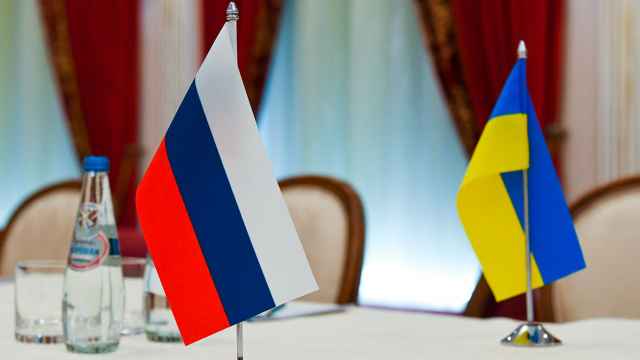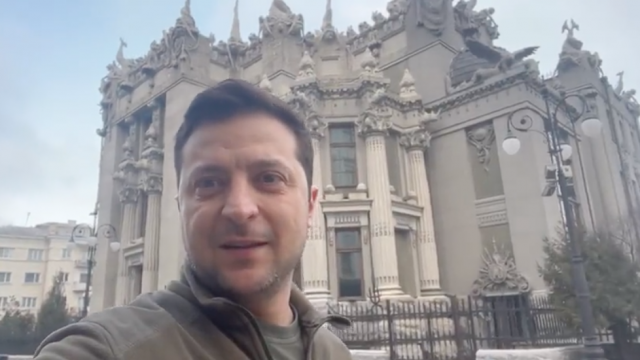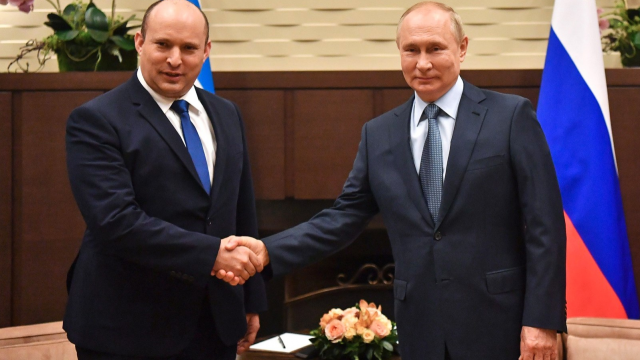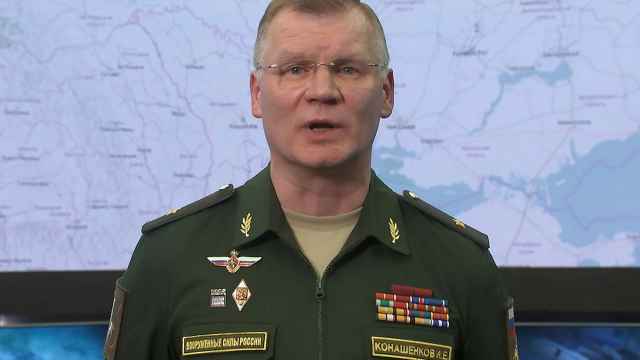The West has provided Moscow with the written responses it had demanded to Russia’s draft agreement on European security. As expected, the responses rejected the main demands of an end to NATO expansion and retreat from Eastern Europe, but did offer some hope on secondary issues. Now the ball is in Russia’s court: will it appreciate the low-key but substantial concessions offered by the West, or refuse them, paving the way (or so the world expects) for a war with Ukraine?
In some ways, the two sides appear to be negotiating over different things. Russia is talking about its own security, while the West is focusing on Ukraine’s. This switch in focus looks to Russia like an attempt to turn the conversation away from the issue at hand toward less important details. Yet for the West, the security problems it has created for Russia didn’t even exist until very recently. One important consequence of Russia’s actions in articulating its demands is that the West has been forced, albeit unwillingly and cautiously, to recognize that there is even anything to discuss.
Previously, it was the West’s firm position that there could be no threat from market democracies, states governed by the rule of law, and open societies approaching Russia’s borders. If Russia is not a rogue state, what does it have to fear from this?
Now, as a result of the ultimatum issued by Russia as it massed its troops on the Ukrainian borders before Christmas — that NATO must pledge never to admit Ukraine into its ranks, and scale back its presence in Eastern Europe — cracks in this position have appeared. The West still believes that it does not pose a threat to anyone, but is now willing to concede that others may view its expansion toward Russia differently, and is prepared to enter discussions in order to prevent such misconceptions from creating very real problems.
So what is the source of Russia’s fears? The modern Western view of security is based on the principle that democracies and autocracies do not pose equal threats. Free market democracies supposedly cannot be a source of aggression or pose a threat of war because their politicians have to answer to voters, and voters do not want to fight and die for their government in an aggressive war, while autocrats can send their people off to die for the regime.
Autocrats, therefore, suspect — and not without reason — that until their countries become free market democracies, they will never be afforded equal security rights. The security of people living in autocracies is considered secondary to their freedom.
The question of whether Russia had any concerns for its own security was considered a bad joke: after all, not only was it stronger than its western neighbors, those neighbors were both richer and more advanced in terms of their legal and institutional development.
Accordingly, there could be no threat from such neighbors. Yet in the last two hundred years, Russia has been attacked by European armies three times — by countries that were wealthier and more developed, both at a domestic and sometimes institutional level. Soldiers from countries that see themselves as perfectly harmless, such as the Netherlands, Denmark, Italy, and Sweden, all waged war on the Russian army and civilians on Russian territory during the last world war, centuries after any Russian soldier had set foot on their land, if ever.
So if the generational trauma and fears of Poland, the Baltics, Czechia, and Ukraine can be seriously taken into account as part of their political motivation today, so can Russia’s.
The many months of speculation of an imminent Russian invasion of Ukraine are in sharp contrast to Russian President Vladimir Putin’s usual method of a swift, covert, and unexpected special operation. It looks, therefore, as though Russia wanted to use Western fears over Ukraine’s security to achieve its broader aims. As those fears grew, so did Russia’s ambitions. Now, with tensions reaching boiling point and the world watching, it’s hard for either side to back down.
But it’s also hard to keep an army mobilized and in field conditions indefinitely. The threat of the use of force is very effective in the short term, but loses value the longer it is drawn out. This explains the deadlines set by Russia in its negotiations with the West. If the West steps out of rhythm with Russia and stops reacting within the given timeframe, Moscow will have to take action to show that it is serious or run the risk of not being listened to next time. It looks like Russia is indeed prepared to take action, even if it is not necessarily the action anticipated right now by foreign observers.
Moscow’s goal is clear: it wants the world to listen to it and to realize that the country speaking is not the same as the one that once lost the Cold War. Russia has a new confidence that has inspired it to revert to the language of the Soviet superpower.
That confidence springs from several sources. The first is Russia’s modernized army and new weapons. Judging by some of Putin’s statements, he is confident that Russia has a temporary technological advantage in some types of weapons, and that the West knows it. Secondly, modern Russia is not the Soviet Union, and did not lose anything to anyone. Finally, the Soviet Union might have had its own military bloc behind it in the form of its Warsaw Pact allies, but Russia likely feels stronger than the Soviet Union ever did, thanks to its partnership with China. Beijing may not be Moscow’s formal military ally, but it’s a reliable source of support with elements of a second anti-Western front. China is also an alternative market and supplier, including of high-tech goods. These are all things that Russia lacked both during the Cold War and in the turbulent 1990s.
In its negotiations with the West, Russia is behaving not like a country preparing to wage war, but like a country that, if necessary, can afford to do so. The aim of the West, on the other hand, is to avoid war. Consequently, Russia can exploit Western fears of war—without actually using force.
Another important asset at Putin’s disposal is the resilience of the Russian people, most of whom remember worse times, though they would of course prefer not to see their return.
With the further sanctions it is threatening, the West is capable of worsening the current living standards of ordinary Russians, but so far, nothing it has proposed could make life harder for Russians than it was in the 1990s, when the West was considered a friend of their country. In other words, Russia is better prepared to be cut off from the SWIFT international payment system than Europe is to be cut off from Russian gas supplies.
Then there is the emotional involvement the Russian public feels concerning Ukraine. It’s not just the Russian government, but the Russian people too who are prepared to pay more to keep Ukraine from going over to the West than people in the West are prepared to pay to bring Ukraine over to their side. Russia is convinced that it is defending its vital interests in Ukraine, while the West believes it is defending its principles. All else being equal, vital interests are simply worth more.
Russian diplomats and ministers have made no secret of the fact that they are carrying out the orders of the commander in chief, Putin. What they haven’t clarified is what will happen if those orders are not carried out. It appears that, like army commanders and various fronts during a war, the diplomats have been given their own instructions, but only the headquarters knows what the master plan is — and there may be more than one.
The Kremlin is often crystal clear about its intentions, and highly evasive on the means to be used. Its aim of stopping NATO expansion, above all into Ukraine, is genuine. How that aim will be achieved depends on how circumstances develop. Putin, for his part, will make that decision not as a politician, but as someone preoccupied with his legacy and place in history.
After all, NATO’s expansion and advance toward Russia’s borders has been described as the main threat to Russia and the most dire consequence of the failed foreign policy of Putin’s predecessors. Yet the most sensitive stage of that expansion—into the Baltic countries — happened on Putin’s watch. It was also during Putin’s tenure that NATO pledged that Georgia and Ukraine would one day become members. For this reason, the president will do everything he possibly can to avoid becoming the Russian ruler who presided over that moment, too. Just like with that other dilemma Putin faces — whether to stay on or step down when his current term ends in 2024—a decision has not yet been made. As usual, there will be several different plans of action on his desk. What is certain is that he will pursue policies that leave both possibilities — of staying in power and of using military force—open to him.
One question remains unanswered, however, and that is why countries that were Russia’s allies in World War II and during the Cold War, not to mention a whole host of nations that were once part of Russian territory, have all ended up as potential enemies.
In one respect, the Western responses are entirely in keeping with the spirit of Russia’s approach to Ukraine: we have created the crisis, and we will help to resolve it. In the West’s case, this refers to the supply of arms to Ukraine and withdrawal from the Intermediate-Range Nuclear Forces treaty, which is now once again up for discussion. This is enough to facilitate work on practical issues of national security. Whether it’s enough to burnish Putin’s historical pedestal remains to be seen.
This article was first published by the Carnegie Moscow Center.








